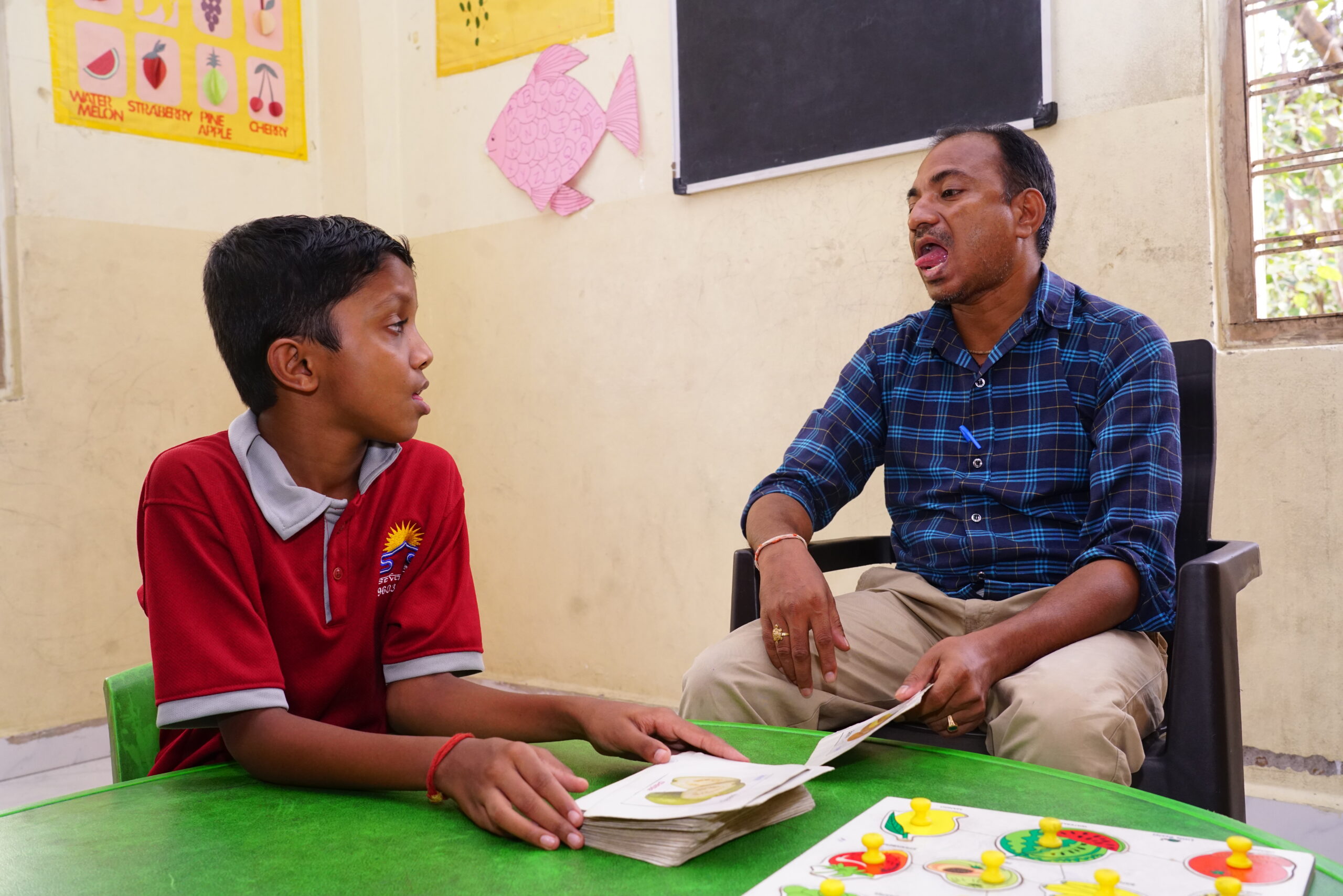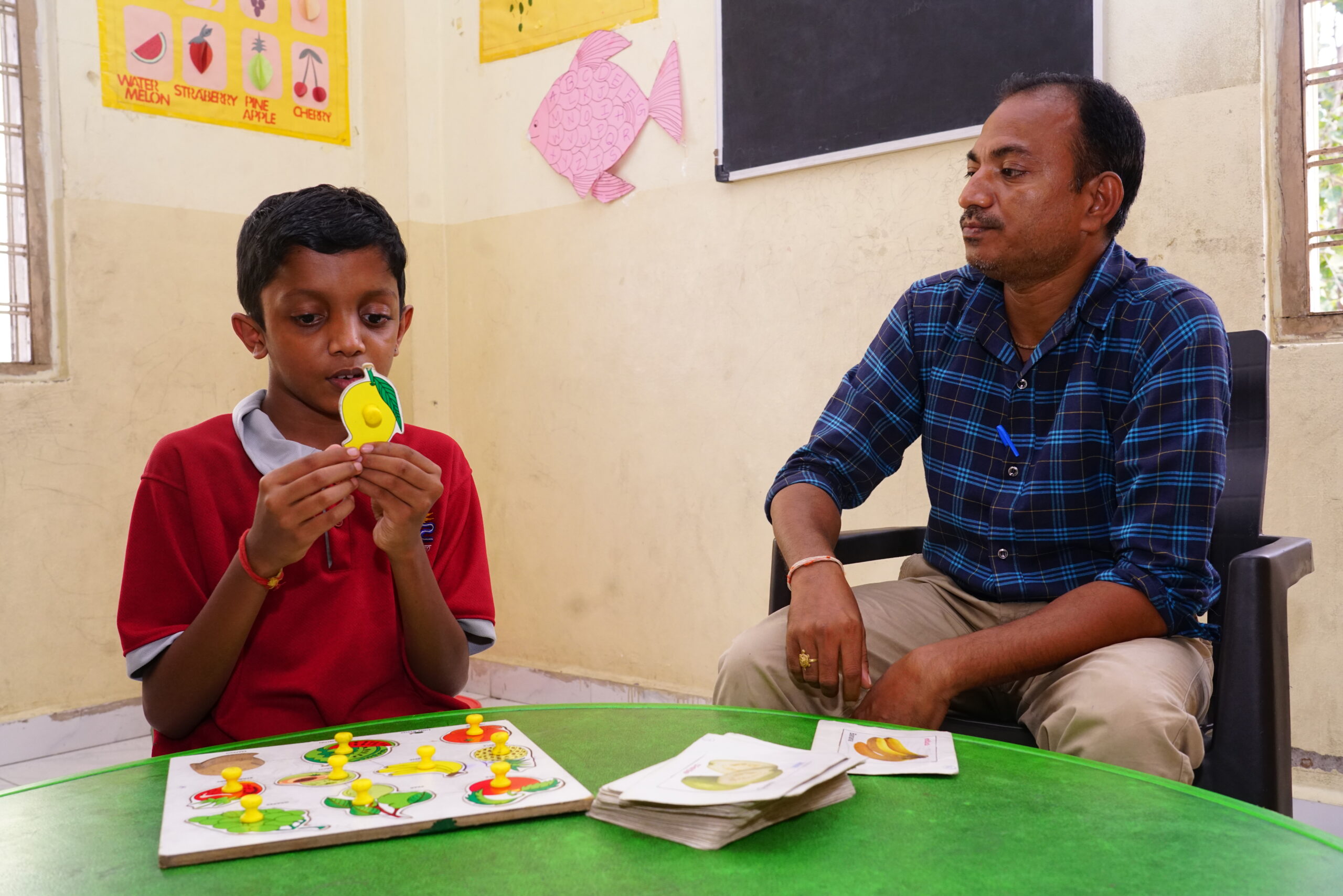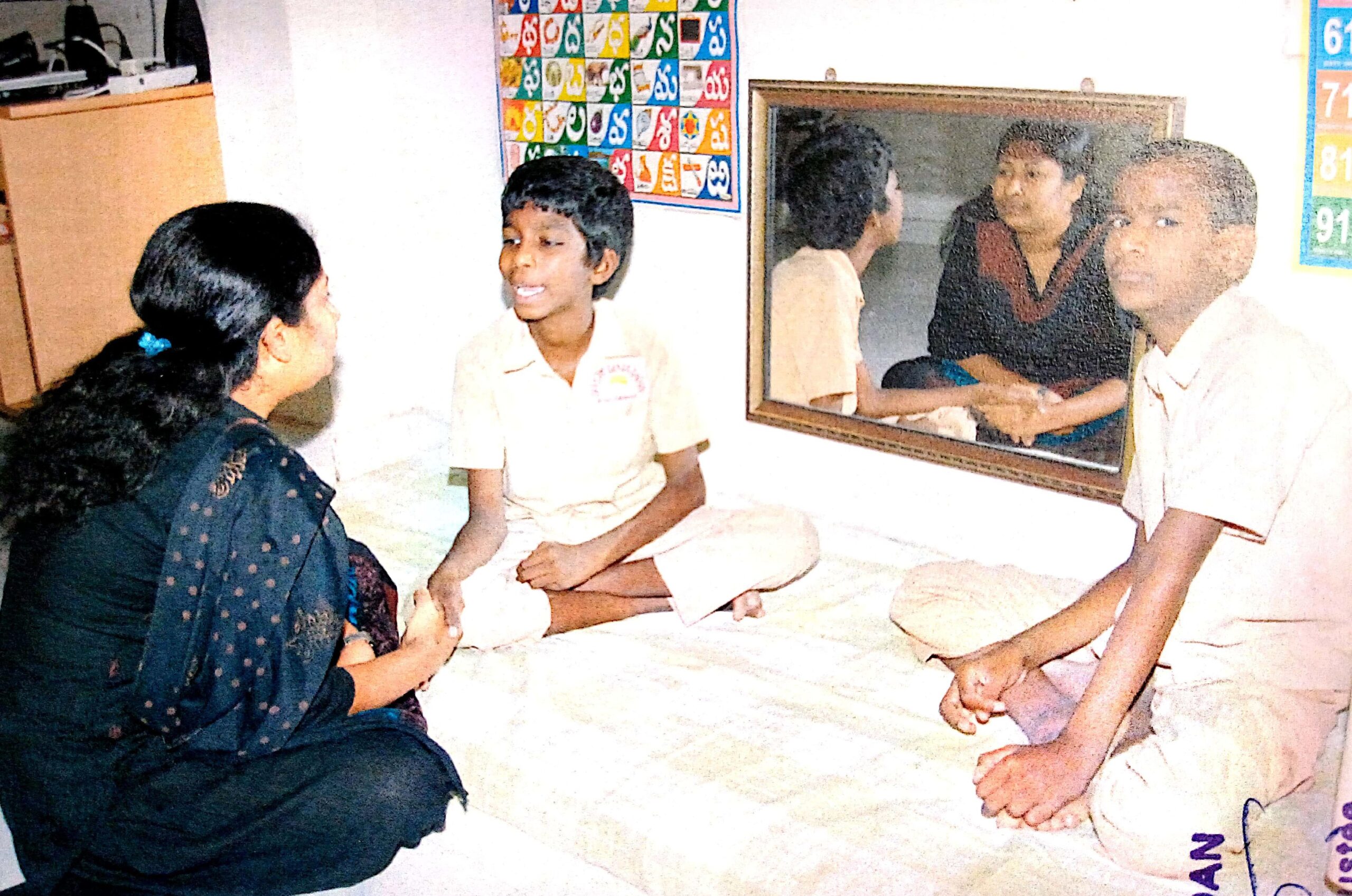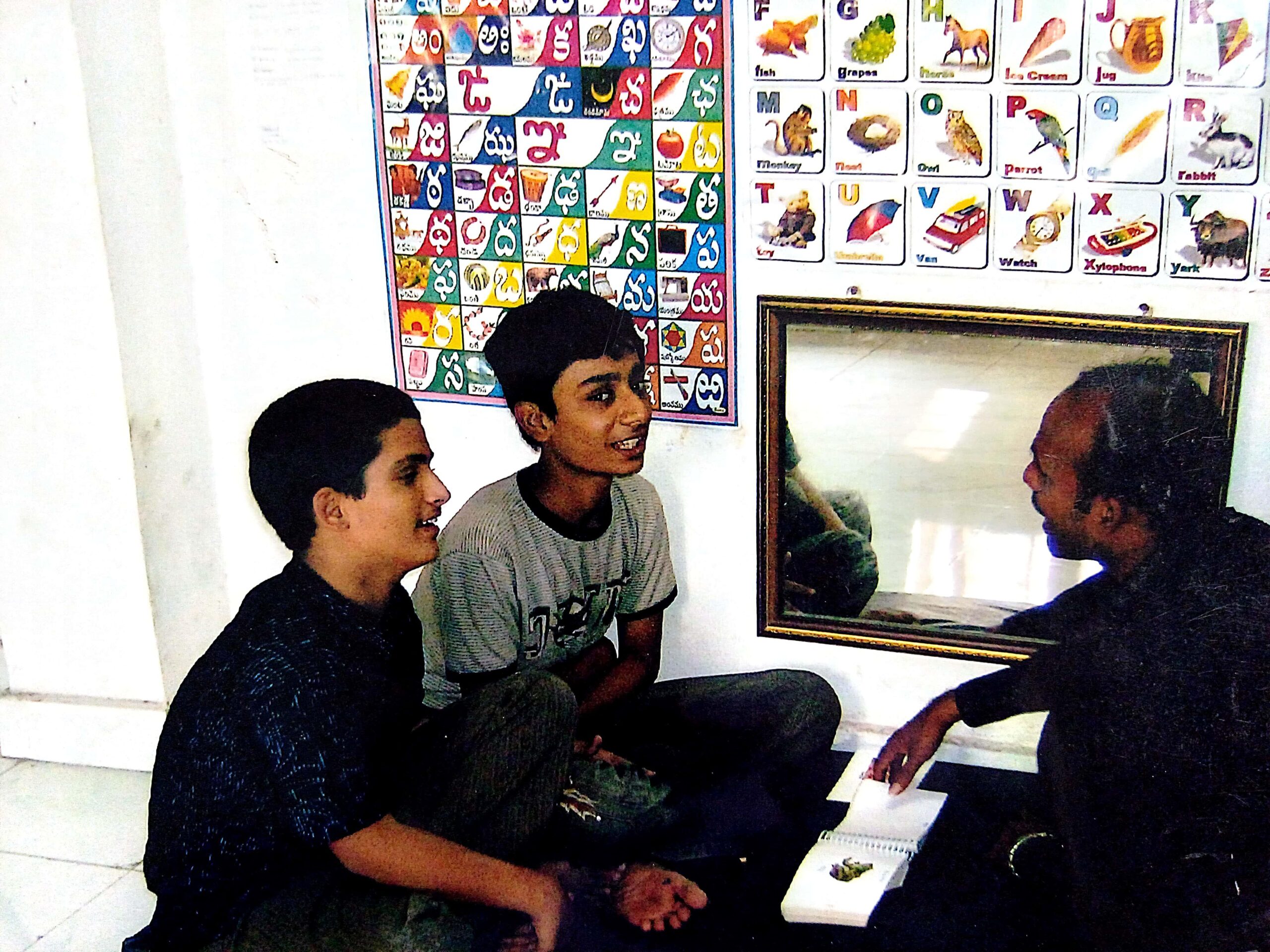Speech Therapy

Speech-language therapy addresses challenges with language and communication. It can help people with autism improve their verbal, nonverbal, and social communication. The overall goal is to help the person communicate in more useful and functional ways. A speech therapy program begins with an evaluation by a speech-language pathologist (SLP) to assess the person’s communication strengths and challenges. From this evaluation, the SLP creates individual goals for therapy. The therapy take place up to 45 mints, the frequency of the sessions depends upon the recommendation from the SLP. Common goals may include improving spoken language, learning nonverbal skills such as signs or gestures, or learning to communicate using an alternative method (such as pictures or technology).
Examples of the skills that speech therapy may work on include:
- Strengthening the muscles in the mouth, jaw and neck
- Making clearer speech sounds
- Matching emotions with the correct facial expression
- Understanding body language
- Responding to questions
- Matching a picture with its meaning
- Using a speech app on an iPad to produce the correct word
- Modulating tone of voice




